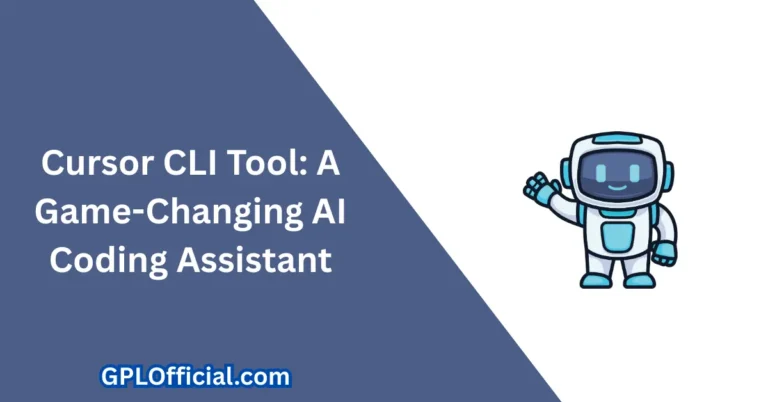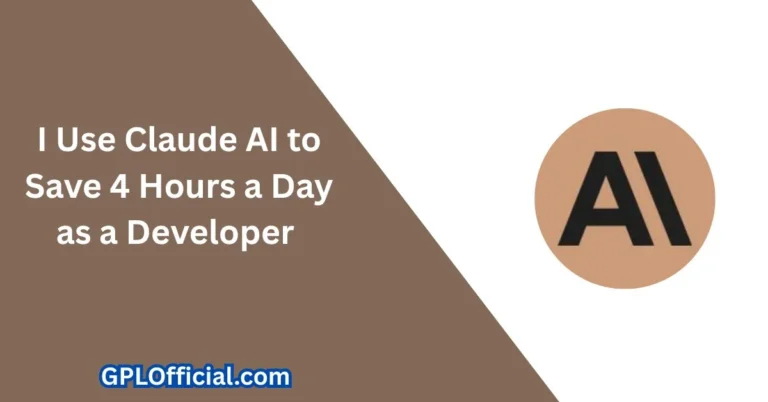5 Brutal Truths I Wish I Knew Before Studying Computer Science
The sad truth is, most CS students are stumbling through a minefield with their eyes closed, worrying about GPAs that don’t matter, being intimidated by the fake elite who know less than they think they do and completely missing the game that actually gets them jobs.
Brilliant students with 4.0 GPA’s are rocking interviews while my friend with a 2.2 GPA is making $500K as a staff engineer at 28. Why? Because no one teaches you what really matters in this industry.
You’re not too dumb; you’re just focusing on the wrong things. You’re plowing through useless courses and missing out on opportunities to make $80,000 a month with AI, chasing salary numbers while your mental health is deteriorating, coding in assembly but unable to express your value.
The First Thing: People Suck Sometimes
The first thing I regret not knowing is that people suck sometimes. In computer science there are basically three types of people.
The Resume Pattern People
The first type is what I call the resume pattern. They pretty much do nothing in college unless it somehow will help their career in the long term.
These people will become the leader of every technology club on campus but they’re more focused on the LinkedIn cloud than actually helping or building anything meaningful.
Example: One of my friends joined this machine learning type club in college and he was told that he would get a lot of handson experience and be able to do some really cool projects but turned out it ended up being a useless boot camp where they would just go over memorized PowerPoint slides.
But hey the leader of a machine learning club on your resume sounds pretty impressive to get you an internship.
Characteristics of Resume Pattern People:
- Only become a teaching assistant for what they can say on an interview
- Don’t really care about helping anyone unless it somehow helps themselves in the first place
- Sit in the front of a lecture hall not to learn better but to just flex their knowledge in front of the professor so they can get a letter of recommendation
Avoid these toxic people at all costs.
The Fake Elitists
The second type is what I call the fake elitists. These are the people who will brag that they’ve been coding since they were five or they know 15 coding languages as a freshman in college.
They’re almost worse than the first group of people because at least those guys are working towards a goal or trying to get a job. But these guys their only goal is to use and abuse any imposter syndrome that you have.
It’s a psychological warfare to establish their dominance. But the interesting part is it’s actually a big facade.
The Reality Check
So a lot of people will act like they know more than they actually do. And I didn’t realize this at first but a lot of people who for example claim that they know languages like Java Python Ruby C all as like a 17-year-old freshman in college chances are they probably only coded something like hello world in that language.
And another thing long-term it really does not matter. And this is something I really regret not knowing earlier because once I joined college and I saw all those people who knew way more than me I pressured myself.
I was thinking “Oh I need to learn Java Python Swift C++ data structures algorithms system design just to stay competitive cuz I felt really behind.” And I stressed myself out.
And I have a feeling a lot of people can relate with this. The feeling of not knowing anything but wanting to learn more and then getting overwhelmed by how much there is to learn.
The Truth About Getting Jobs
But it turns out to get a job or an internship it does not matter at all. All they care about is how deep you know a certain language and if you can solve a technical puzzle using it.
For me I got an internship way faster than any of these elitists at Amazon as a freshman in college because instead of focusing on competing against the patterns and the elitist I learned the internship game and I decided to focus on myself and how to crack the coding interview.
So don’t let these people intimidate you.
The Genuine Builder
The third type of person in computer science is what I call the genuine builder. And this is the category you should strive for.
These are the people who are actually interested in technology for what it is. They have a mentality that a rising tide lifts all boats. Meaning if I win you win we all win.
What Genuine Builders Do:
- Share their screen at 2 a.m to help you debug your code or get you hyped about your side projects
- Don’t gatekeep a career opportunity like a career fair or networking event
- Share the notes if you miss class
- Help you study in a group setting
And to be honest after hanging out with this group of people they actually ended up becoming my lifelong friends because we end up just taking the same classes together for years on end.
And so definitely find your genuine builders for your network.
Sweet Launchpad Community
Really quick if you’re trying to find your own community of genuine builders then I suggest you join mine. It’s called Sweet Launchpad and it’s not just another Discord server or newsletter.
This is a mentorship powered community where we actually help you land your first tech job.
What You Get:
- Weekly live calls with me and Rafé who is a software engineer at Salesforce in direct mentorship support
- Access to a complete course that’s already helped hundreds of students land their job in tech
- Access to exclusive interviews that I’ve had with top tech professionals
- Curated resources to help you level up your resume and portfolio
- A chance to connect with real people who are serious about building their career
If you’re interested check it out Link will be down below in the description.
The Second Thing: How Useless GPA and Classes Are
The second thing I really regret not knowing is how useless GPA and classes are. And I have tons of proof for this.
Real-Life Examples
Example 1: One of my friends had a 2.2 GPA and he was told by his TA and professor to basically drop computer science. But he didn’t listen to them because GPA does not matter long term. And now he’s a $500,000 staff software engineer at the age of just 28.
Example 2: Another one of my friends had a 2.1 GPA and she actually ended up quitting computer science but her GPA and lack of computer science classes did not affect her at all. And she ended up landing a $200,000 software engineering offer at Microsoft.
The Reality of GPA Requirements
And yes I know exceptions don’t break the rules. And some companies have minimum requirements like having a 3.2 GPA.
But in my personal experience out of the hundreds of companies I’ve applied to only one and I’m saying exactly one actually checked my transcript just to see if I had above a 3.0 GPA.
What Actually Matters
And so if I was a student right now and I could either focus on building up my career by doing projects internships and grinding interview prep or focus really hard on classes to get a 4.0 I would put almost all my attention on landing that job because that’s what matters long term.
No employers are going to look at your resume and see you had a 3.8 GPA and be like “Oh wow Let me hire you.” No they’re going to be like “Cool story bro but can you pass the coding interview?”
The Mario Kart Analogy
It’s almost as if you’re learning how to drive and you tell your instructor “Oh by the way I won first place in Mario Kart racing.” Like good for you but can you parallel park a real car can you drive on the highway can you prove you have real skills previous accolades mean nothing.
Why Most Computer Science Classes Are Useless
And in a similar light to GPA a lot of computer science classes are also useless. And this is something I really wish I knew earlier.
The Cake Analogy
To picture this imagine you go out to a restaurant and you order a piece of cake. While you’re eating that cake are you focused on enjoying that piece of cake or are you worried about I wonder where this flower is from i wonder what eggs they used in this.
No no one cares about the behind-the-scenes work while they’re dealing with the actual thing.
Software Engineering vs Computer Science
Similarly software engineering deals with a lot of web and application development while computer science is the behind the scenes all the foundations computing and theory.
And most computer science majors like myself end up becoming software engineers. But on the everyday job you realize the stuff you learned in school never shows up on the job.
Matter of fact I know people with physics degrees that become software engineers. I know people who didn’t study anything technical in college and have become software engineering managers.
And so why do we grind so hard late at night trying to learn C C++ assembly computer architecture especially when it doesn’t matter at all as a software engineer no idea.
The Four Exceptions – Useful Computer Science Classes
But the only exceptions at least for me are these four computer science classes that actually help me become a software engineer:
1. Object-Oriented Programming
This is essential for coding interviews. Make sure to master the four principles:
- Inheritance
- Polymorphism
- Abstraction
- Encapsulation
2. Data Structures and Algorithms
Important knowledge about:
- Sets
- Lists
- Maps
- Trees
- Graphs
- Big O notation
- Pretty much everything that is on a technical coding interview
I also used a visual tool called CSV tool which helped me understand data structures and algorithms better.
3. Systems and Networks
This is important for advanced interviews. Understanding technical architecture and being able to design a system for companies like Netflix or Spotify will give you an edge.
4. Advanced Software Engineering
I deployed a full stack web application using agile which is a near replica to what you actually do on the job.
The Third Thing: The True Impact of AI
The third thing I really regret not knowing is the true impact of AI and particularly I really wish I was more on the frontier.
The Early Days of AI
So back when I first started college if you said the word AI or mentioned machine learning you were pretty much seen as a genius. Like wow you know artificial intelligence Wow you know what machine learning is.
And personally in university I got to dabble a little bit into this world:
- I learned machine learning Python libraries like sklearn
- I took a couple artificial intelligence courses like game AI where we defeated enemies using artificial intelligence
- I also got to use AI coding tools like GitHub copilot where we literally got to speed up our development by having it code out simple functions
And honestly that was super mindboggling at the time because Chad GBPT wasn’t even mainstream yet.
What I Regret Not Knowing
But fundamentally what I regret not knowing is how far AI can actually go. In the last couple years so many startups have taken off the ground by solving really cool problems with the power of AI.
RZ GPT Success Story
For example one time there was this college student and he created this app called RZ GPT where a user could input a screenshot of a text he sent a girl and the AI would tell him exactly what to say to rez her up or impress her.
And I know what you’re thinking. That sounds so stupid. Like who would pay for that it’s a GPT rapper.
Well guess what it took just two articles of advertisement and he started printing $80,000 per month. It went viral and truly with the power of AI you could solve so many problems and start printing real money.
AI Business Opportunities
- Fitness Trainer: Create a workout plan using GPT that is customtailored to your weight goals
- Nutritionist: Create a plan with exact macros that you need
And so if I was in college right now I would dabble way more into AI and even talk with certain professors about certain applications of it and really push it to the edge.
If you’re just using AI to write code or help you with your homework you’re touching the tip of the iceberg but there’s so much under the surface that if you can get a real understanding it will change your life.
Top Three AI Learning Recommendations
And so if you want to learn how to actually apply AI here are my top three recommendations:
1. Building Systems with ChatGPT API
This is a course by OpenAI and it’ll teach you how to build AI apps. You’ll learn how to:
- Automate customer service
- Create intelligent chat bots
- Understand the architecture behind deploying real world AI
2. Generative AI with Google Vertex AI
This is made by Google and this course will walk you through how to build applications powered by Gemini. You’ll complete hands-on labs to construct apps using a visual interface in a playground-like environment.
3. Multi-Agent Systems with Crew AI
If you’re interested in building AI agents that can work together automate tasks or manage workflows this course is a great starting point.
It introduces you to a framework that lets you design and deploy multiple AI agents with:
- Roles
- Memories
- Tool usage
You’ll create agents that can research respond to queries and coordinate campaigns.
All three courses here are free so you better get started ASAP.
The Fourth Thing: Your Mental Health Matters Way More Than Your Salary
Number four your mental health matters way more than your salary. And this one really is not talked about enough.
The Salary Flexing Problem
A lot of people out there try to flex their software engineering salary:
- “I make $200,000 at Google I get free massages free food free everything”
- “I work at a quant firm and I earn a million dollars a year”
And especially if you’re a student without a job it’s easy to feel behind when you’re staring at other people’s highlight reels.
And I used to think like this till I got into the industry and actually started talking with other professionals.
The Hidden Reality
Quant Firm Story
In fact one of my friends friends who worked at a quant firm said in his first week on the job he clocked in 100 hours of work. An 80-hour work weeks at that company was pretty common.
He was making bank but his work life was not that glamorous. But of course people try not to talk about that.
Meta Layoff Story
Another one of my friends was making real good money as a meta software engineer. But one day out of the blue he was laid off since the company overhired during the pandemic and he actually ended up being unemployed for 18 months.
And so even though he was a talented software engineer if the market isn’t in your favor you will still be impacted.
Mental Health Recommendations
So at least for your mental health I always recommend to not have super high expectations:
Do:
- Like salary is great but don’t expect the really high salary
- Work hard for your job
- Take breaks
- Touch grass and get sunlight
Don’t:
- Working on weekends isn’t normal and if you’re consistently doing that something’s wrong
And really understand that sometimes people try to hustle and chase the bag but they end up losing their sense of self-identity and self-worth through the process.
And always remember your salary and your job is not your worth.
The Fifth Thing: Being Smart Is Not Enough
The fifth thing I really wish I knew is that being smart is not enough. And I hate how true this is and I hate how I didn’t know this earlier.
The Bare Minimum Reality
And especially if you want to land a job or internship in today’s market being technically strong is the bare minimum.
If you want to land a software engineering role you need to learn how to play the game. And this game is not taught in school.
Success Story – The 2.2 GPA Friend
Like I had mentioned one of my friends had a 2.2 GPA. He failed computer science. And he was told by a TA that he wasn’t cut out for tech.
But instead of letting himself down in this smartness category he decided he was going to rebuild his resume by adding small side projects from online tutorials which helped him actually get into this JP Morgan hackathon experience.
All of a sudden he could DM recruiters on LinkedIn with his JP Morgan experience since now he had leverage.
Eventually he broke into companies like:
- AWS
- Microsoft
- Meta (as a software engineer)
And like I said now he’s a 28-year-old $500,000 staff software engineer.
So he learned despite his computer science smartness not being there as long as he presented himself well and that’s really the skill he was going to be successful.
The Flip Side – Smart But Struggling
And on the flip side I’ve seen some crazy smart computer science students. Like they could probably code assembly in their sleep that type of smart.
But because they didn’t know how to:
- Present themselves
- Showcase their work
- Build relationships
- Communicate well
They struggled to land a job.
How to Practice Self-Presentation
And so I want you to practice pitching yourself to others. Find people who work at companies you’re interested in.
Go to their LinkedIn and say something like “Hey my name is Jod I’m a computer science major at this university Could we take 10 to 15 minutes to talk about your experiences at this company?”
Benefits of This Approach:
- You practice pitching yourself
- You might end up getting a referral
- You just expanded your network
- Through this extra practice you become better at communicating
The Sad Reality
And it’s a really sad world that we live in. But you can accomplish so much out there. But if you can’t communicate your value and make yourself known it’s almost like it doesn’t exist and it doesn’t matter.
But hopefully through this practice you should be able to iteratively get better.
Conclusion
Well that’s about all I have in this article. I really hope that you guys enjoyed it.
And if you did make sure to hit the like button subscribe if you haven’t already.
If you’re interested in my absolutely free tech newsletter link will be down below in the description.
And if you’re interested in learning data structures and algorithms you might want to watch this article right here.






